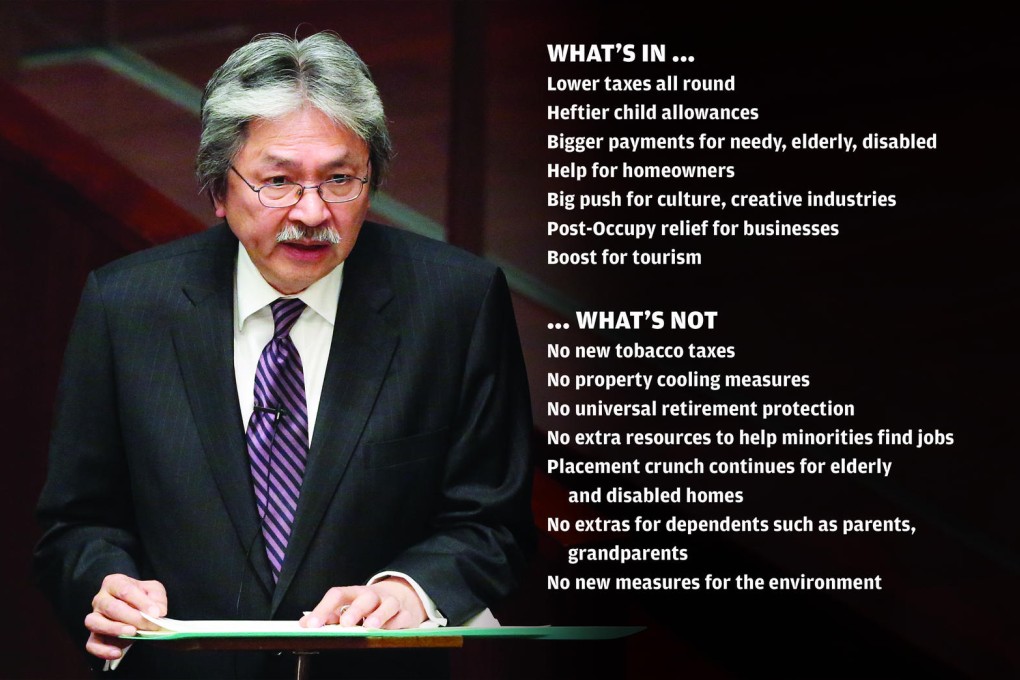Financial Secretary John Tsang unveils HK$34b sweeteners package, including tax rebates
Relief measures from financial secretary will benefit middle class and lower earners in bid to heal scars of divided society in wake of Occupy

The city's budget for the next fiscal year includes a HK$34 billion economic relief package, in an attempt by the government to heal a society disrupted by political squabbles and challenged by a fast-ageing population.
The sweeteners Financial Secretary John Tsang Chun-wah announced in yesterday's speech were more generous than expected, benefiting both the middle class and lower earners. The relief package's total value is a 60 per cent increase from last year.
The divisions ... aroused concern about much more radical social conflicts
The most generous moves include a salary tax rebate capped at HK$20,000, and providing two extra months of social security assistance payment, fruit money, old age living allowance and disability allowance. A total of 1.82 million taxpayers and 1.2 million welfare recipients will benefit.
"The long, drawn-out, unlawful Occupy movement disrupted different facets of the city to varying degrees. The serious divisions in society that emerged ... have not only affected the image of Hong Kong, but also aroused concern about much more radical social conflict," Tsang said.
Watch: Occupy protests blamed as Hong Kong misses growth targets
The generous giveaways were announced a year after Tsang declared his intention to gradually reduce sweeteners, saying tax rebates and one-off relief measures would "soon become history".